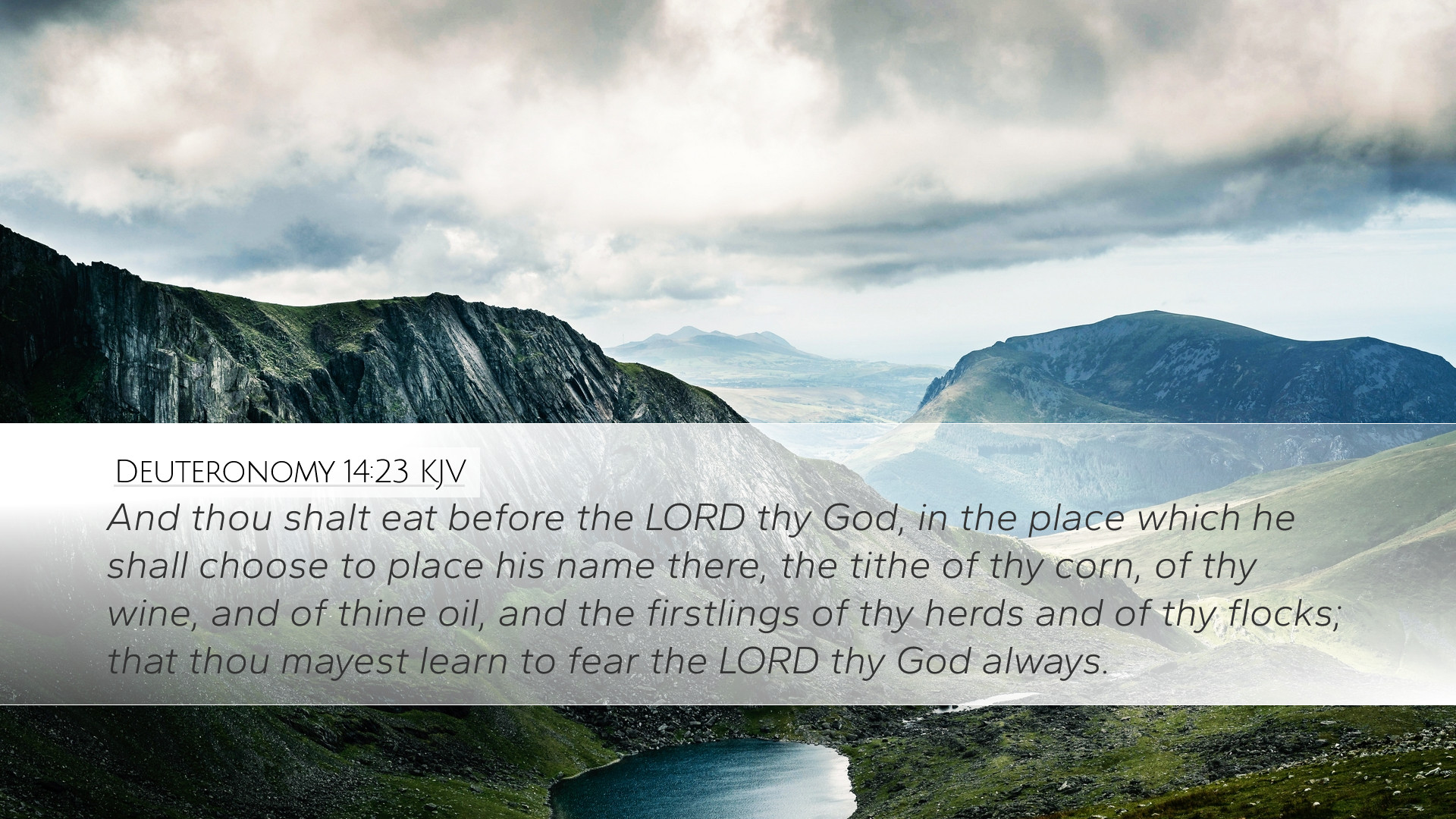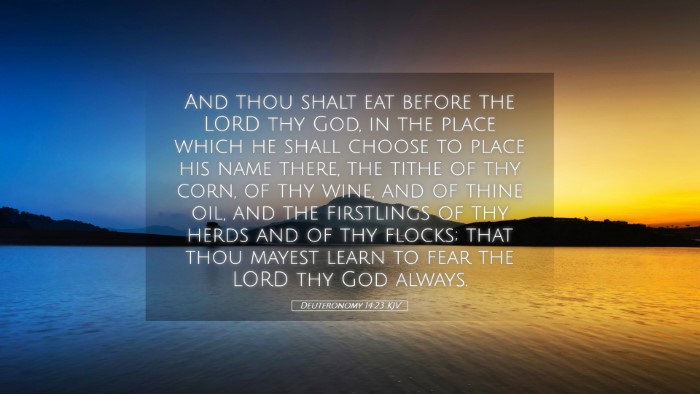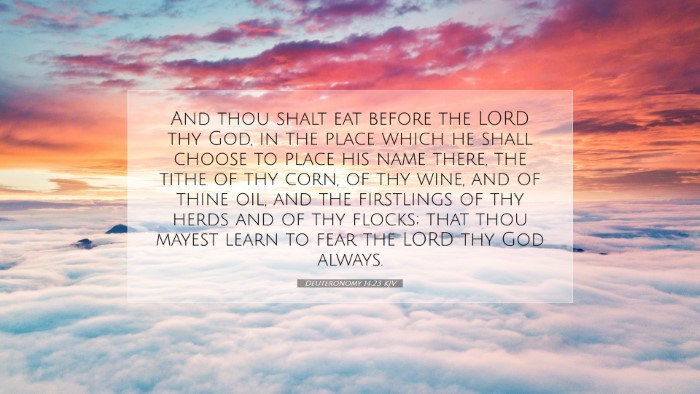Commentary on Deuteronomy 14:23
Verse: Deuteronomy 14:23 (KJV): "And thou shalt eat before the Lord thy God, in the place which he shall choose to place his name there, the tithe of thy corn, of thy wine, and of thy oil, and the firstlings of thy herds and of thy flocks; that thou mayest learn to fear the Lord thy God always."
Introduction
Deuteronomy 14:23 is a pivotal verse highlighting the importance of worship and gratitude within the Israelite community. The commandment encapsulates the essence of giving and its purpose in the life of a believer. Below is a synthesized commentary that draws from the insights of various public domain commentaries, including those of Matthew Henry, Albert Barnes, and Adam Clarke.
Contextual Background
This verse occurs within the broader context of the laws given to Israel concerning their unique identity as God's chosen people. The guidelines presented in Deuteronomy are framed within a covenant relationship, whereby obedience to God’s commands brings blessings, and failure leads to curses. This chapter specifically deals with dietary laws and the principles surrounding tithing.
Meaning of the Tithe
Tithing is introduced as a spiritual discipline to cultivate a proper relationship between the Israelites and God. The tithe consisted of the produce of the land and livestock, signifying both agricultural abundance and God’s provision. This act served several purposes:
- Recognition of God's Sovereignty: Presenting the tithe before God acknowledges His ownership over all creation and every good gift received.
- Community and Worship: Eating together in God's presence promotes unity among the people of Israel and fosters a communal identity centered around worship.
- Spiritual Education: The act serves as a reminder and an educational tool aimed at instilling the "fear of the Lord," which is foundational to wisdom and obedience.
The Place of Worship
The directive to present the tithe "in the place which he shall choose to place his name there" emphasizes the importance of designated places of worship. Both Barnes and Henry point out that this refers to the future Temple in Jerusalem, which signifies God's invitation for His people to gather in His presence. The “place” serves as a physical reminder of God's dwelling among them:
- Symbol of Divine Presence: It reflects a specific location where God's presence and glory would be manifested, enhancing the significance of communal worship.
- Unification of Worship: Centralizing worship prevents the fragmentation of religious practices and maintains doctrinal integrity.
Learning to Fear the Lord
The latter part of the verse encapsulates the profound spiritual truth that the act of tithing and communal feasting serves a deeper purpose: to “learn to fear the Lord thy God always.” This notion of fearing God is not one of dread but of reverence and awe:
- Understanding Authority: Recognizing God's holiness and justice fosters a healthy fear that motivates obedience and wise living.
- Relationship Over Ritual: The practice is designed to build a relational understanding rather than strict ritualism. By participating in these worship practices, the Israelites internalize the fear of God, which leads to a transformative life.
Applications for Today
For pastors, theologians, and students, the implications of Deuteronomy 14:23 are significant:
- Spiritual Disciplines: This verse encourages modern believers to think about their own practices of giving and worship and how they relate to their overall relationship with God.
- Community Worship: It highlights the need for gatherings in places that honor the presence of God, making corporate worship a priority in the life of the faith community.
- Education and Instruction: Imparting an understanding of the fear of the Lord is vital; teaching about God's character informs the way believers respond to Him.
Conclusion
Deuteronomy 14:23 serves as a rich source for understanding the principles of worship and the discipline of tithing within the life of God's people. This verse connects the physical act of giving with a deeper spiritual reality, promoting reverence, community, and acknowledgment of God’s providence. As we reflect on this scripture, may it inspire a renewed commitment to worship God with our whole selves and to lead others toward a healthy fear of Him—an awe that transforms our hearts and lives.


